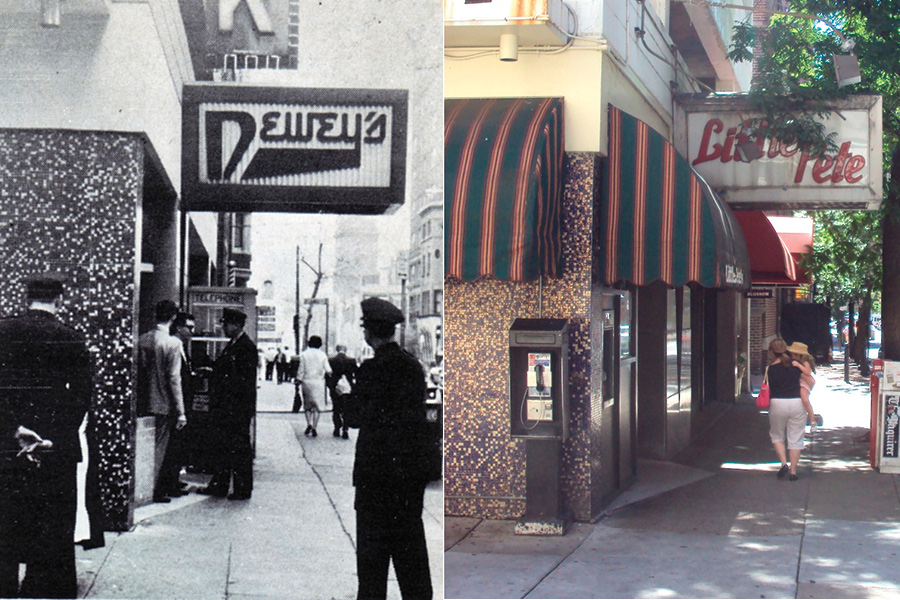In early May 1965, at a small coffeeshop called Dewey’s on 17th Street near Rittenhouse Square, Philadelphia transgender and gay people won an early and significant victory over discrimination when they held the first successful sit-in for LGBT rights in the nation.
During the 1960s, the Dewey’s chain had about 18 locations all over Center City. The one on 13th Street was open all night, making it the perfect hangout after the nearby bars and after-hours clubs closed. Widely known as the “fag” Dewey’s, it was packed late into the night with a whole spectrum of drag queens, hustlers, dykes, leather men and Philly cops looking for a cup of coffee — a cross section of life on 13th Street. Philadelphia’s “gay ghetto.”
The problem was that other managers of Dewey’s around the city were intent on keeping the queer-tolerant 13th Street location the exception and not the rule. On the last weekend of April 1965, the management of the Dewey’s at 17th and Chancellor streets (now Little Pete’s) made it clear that they would refuse service “to a large number of homosexuals and persons wearing non-conformist clothing.”
On April 25, modeling their actions on then-current African-American civil-rights protests, and supported by the local activist Janus Society, more than 150 protestors — black, white, transgender, lesbian and gay — staged a peaceful sit-in, an amazing thing to do in Philadelphia in 1965, four years before the Stonewall Riots. Police arrived and three of the protestors who refused to leave were arrested. The protestors were young — two males and one female. When Clark Polak, president of the Janus Society, a local gay-rights group, suggested legal help to them, he was arrested too.
Over the next week, in support of the protestors, Janus distributed some 1,500 leaflets outside the restaurant. On May 2, they staged a second sit-in. This time, when the police were called, they spoke briefly with the protestors and then simply left, declining to take any action at all. The management agreed to end the discrimination and the protestors disbanded, having staged the first successful LGBT-rights sit-in in the country.
Polak and the Janus Society rigorously defended the rights of “the masculine woman and the feminine man,” something other homophile organizations had carefully avoided addressing. The Dewey’s sit-in marked an important step in the ongoing struggle of transgender and gender-queer people, especially those of color, to lay claim to public space in Philadelphia.
In the following years, as Dewey’s turned into Little Pete’s in the 1970s, the space continued as a late-night sanctuary for generations of the city’s LGBT population. When the little restaurant closes this weekend, another site that tells the story of LGBT resistance will be lost forever.
Bob Skiba is the curator of the John J. Wilcox Jr. LGBT Archives at William Way LGBT Community Center.
